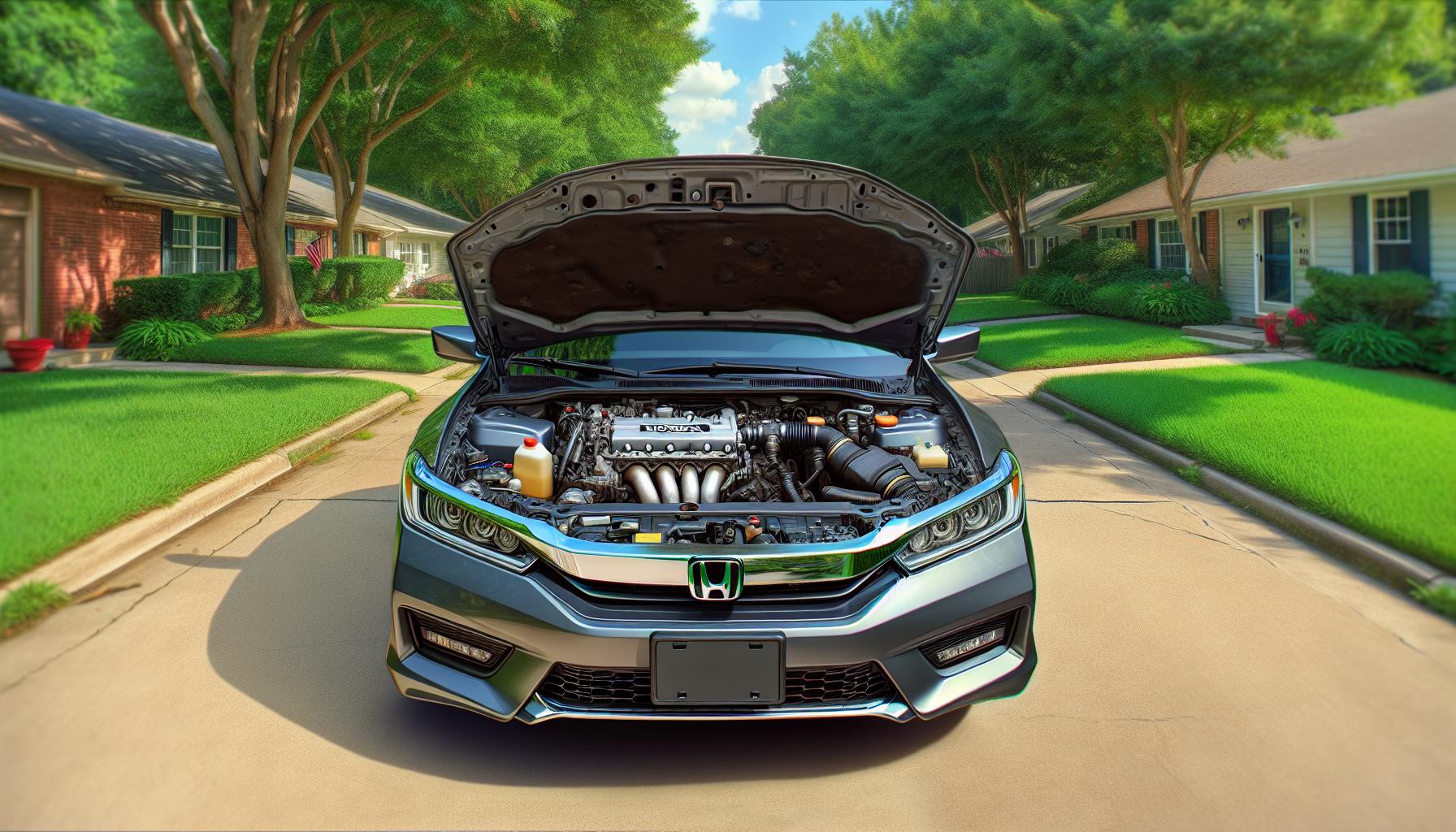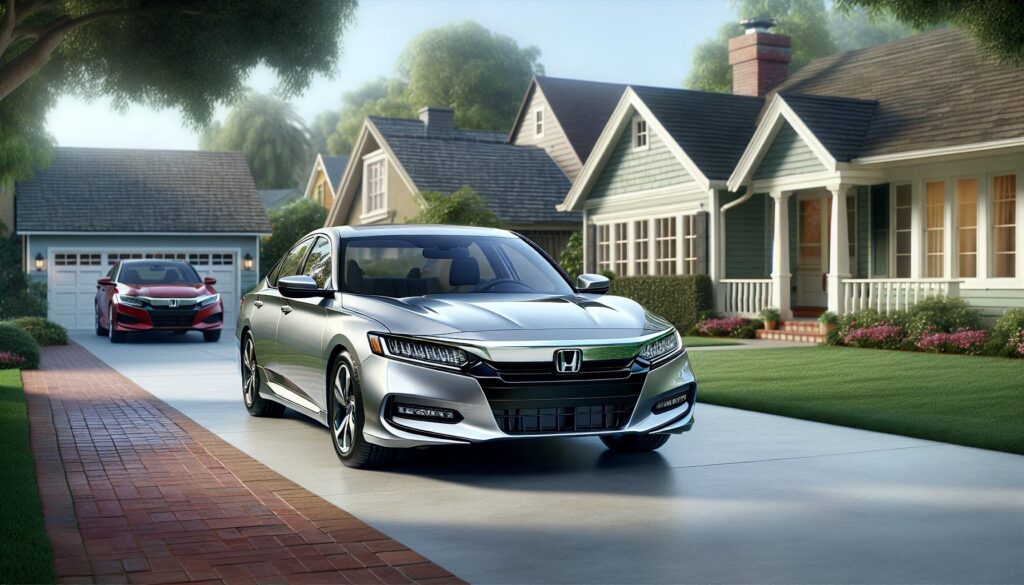The Honda Accord has long been a favorite among car buyers, known for its reliability and comfort. However, not all model years are created equal. Some have faced significant issues that can lead to costly repairs and headaches for owners. Understanding which years to avoid can save potential buyers from making a regrettable purchase.
In this article, we’ll dive into the specific model years that have garnered negative attention due to mechanical problems, safety concerns, and overall performance. By highlighting these problematic years, readers can make informed decisions and steer clear of potential pitfalls when shopping for a used Honda Accord. Whether it’s a family car or a daily commuter, knowing what to watch out for is crucial in ensuring a smooth driving experience.
What Years of Honda Accord to Avoid
Honda Accord ranks as one of the most recognized midsize sedans in the automotive market. Owners appreciate its blend of reliability, comfort, and fuel efficiency. The Accord has consistently received high ratings for safety and performance over the years, making it a popular choice among families and commuters. However, certain model years exhibit patterns of mechanical shortcomings, which can affect overall ownership satisfaction.
Honda produced its first Accord in 1976, and it has since evolved through various generations. Each new iteration includes updates that enhance design, technology, and performance. The Accord’s reputation for durability makes it a favorable option for used car buyers. However, prospective buyers should be aware of specific years that present mechanical issues, including transmission failures or engine problems.
When considering a used Honda Accord, examining vehicle history reports and reviews is crucial. Owners often report high levels of comfort and drivability, but some model years are marked by complaints that could indicate greater risks of breakdowns. Identifying these models helps potential purchasers make more informed decisions, allowing them to capitalize on the Accord’s strengths while minimizing potential pitfalls.
Common Issues Across Generations

Multiple Honda Accord generations exhibit recurrent mechanical issues that can impact reliability and performance. Understanding these problems helps potential buyers navigate their purchase decisions effectively.
Engine Problems
Engine problems frequently occur in various Honda Accord models, particularly those manufactured between 2003 and 2007. Common issues involve excessive oil consumption, especially in the 2008-2010 models, and the failure of engine mounts, which leads to vibrations and potential engine misalignment. Owners of these models often report problems with the timing belt and engine block, leading to costly repairs. Engine knocking and stalling at idle are also prevalent, contributing to owner dissatisfaction.
Transmission Concerns
Transmission concerns also pose significant issues for Honda Accord owners. Models made from 2000 to 2003 often face premature transmission failure, requiring expensive replacements. The 2003-2007 generations particularly experience harsh shifting and slipping, primarily attributed to faulty transmission control units. Additionally, the 2013-2015 models report issues with CVT (continuously variable transmission) problems, including noise and improper gear engagement. Recognizing these transmission patterns aids buyers in avoiding models with heightened mechanical risks.
Years of Honda Accord to Avoid
Certain model years of the Honda Accord exhibit notable mechanical issues, making them less desirable for potential buyers. Below are specific years that should raise caution.
Model Year 2003
The 2003 Honda Accord features a range of mechanical issues. Owners commonly report excessive oil consumption, leading to engine damage. Furthermore, engine mount failures contribute to vibrations and rough handling. Timing belt issues can also arise, leading to costly repairs. Transmission problems, including slipping and harsh shifting, are prevalent in this model year, further diminishing reliability.
Model Year 2008
The 2008 Honda Accord is notorious for its braking system issues. Many drivers experience premature wear on brake pads and rotors, resulting in reduced safety and increased maintenance costs. Additionally, this model suffers from transmission concerns, particularly harsh shifts and erratic behavior, potentially leading to complete failures. Oil leaks are another common problem, affecting the overall performance and longevity of the vehicle.
Model Year 2013
The 2013 Honda Accord, particularly those equipped with a continuously variable transmission (CVT), faces significant reliability challenges. Many owners report issues such as shuddering during acceleration and unexpected loss of power. Electrical problems, including malfunctioning navigation systems and dashboard displays, frequently occur, adding to owner frustration. Increasing repair costs associated with these issues further diminish its overall value and dependability.
Recommendations for Buyers
Potential buyers of the Honda Accord should consider specific alternatives and maintenance practices to ensure a satisfactory ownership experience. These recommendations will help in maximizing value and reliability when selecting a used model.
Considering Alternatives
Consider exploring alternative midsize sedans, especially those known for reliability and performance. Options like the Toyota Camry and Mazda6 consistently receive high marks for dependability. The Nissan Altima also offers a reliable choice with a solid reputation. Additionally, examining vehicles outside the Honda brand may reveal models with better performance ratings in critical years. It’s beneficial to look at reviews and consumer ratings when assessing these alternatives, as they can provide insights into ownership experiences and long-term reliability.
Maintenance Tips
Prioritizing regular maintenance can enhance the longevity and performance of a used Honda Accord. Following these maintenance tips promotes vehicle reliability:
- Regular Oil Changes: Schedule oil changes every 5,000 to 7,500 miles to prevent engine wear.
- Transmission Fluid Checks: Inspect transmission fluid levels and replace them according to the owner’s manual.
- Brake Inspections: Conduct brake inspections every 10,000 miles or annually to ensure safety.
- Tire Maintenance: Rotate tires every 5,000 to 7,500 miles and monitor tire pressure monthly.
- Scheduled Service: Adhere to the manufacturer’s recommended service schedule for key components.
Implementing these practices will help maintain the vehicle’s performance and reliability while minimizing potential issues.
Potential buyers should approach the Honda Accord with caution regarding specific model years. By avoiding the 2003, 2008, and 2013 models, they can steer clear of common mechanical and performance issues that may lead to costly repairs. Understanding these pitfalls allows for a more informed purchasing decision.
Exploring alternative midsize sedans can also provide peace of mind for those seeking reliability. With diligent maintenance and careful selection, drivers can enjoy the many benefits of owning a Honda Accord while minimizing risks associated with less dependable years.
